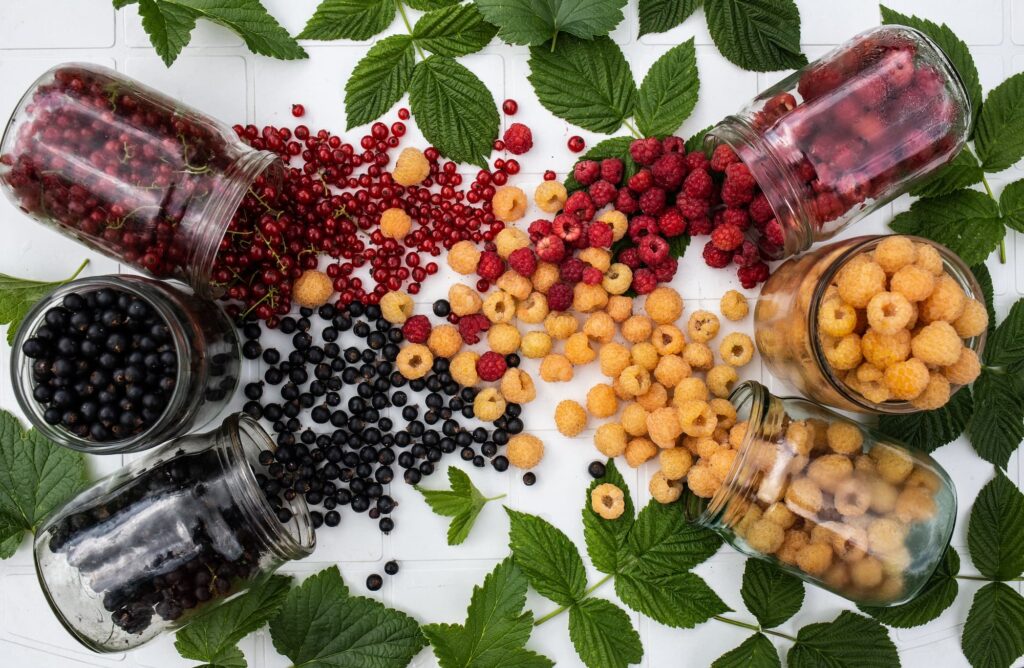Did you know that the health of your gut can affect your mental well-being? Research indicates that the bacteria in your intestines can influence your happiness hormone, making them a significant factor in your mood!
The gut-brain connection
Our organs contain millions of bacteria that can influence the functioning of other organs in the body. Therefore, it might not be surprising that our stomach can have an impact on brain function. You’ve probably heard of the “gut feeling” – you can experience this when you’re nervous, sometimes manifesting as digestive symptoms.
Recent research has revealed a two-way communication between our gut bacteria and our minds. This means that not only is our mind responsible for a healthy gut, but a healthy gut flora also influences our mental health!
Serotonin and the gut
The microorganisms in our intestines, the trillions of bacteria residing there, serve several crucial functions. Among these is the production of certain vitamins and maintaining a healthy immune system. Moreover, the three primary neurotransmitters, GABA, dopamine, and serotonin, are largely produced in your gut.
In fact, research shows that a staggering 90% of serotonin, often referred to as the “happiness hormone,” is produced in our intestines! Neurotransmitters play a significant role in how we feel. They affect our sharpness of mind, our sense of agency, our response to pain sensations, and they can even influence emotions such as happiness, anxiety, or depression.
For the optimal production of these neurotransmitters and hormonal balance, a diverse colony of both good and bad bacteria in the gut is necessary.

Causes of gut imbalance
What can you do to maintain this balance? Taking good care of both your mind and your gut is essential. To begin with, let’s discuss some factors that can disrupt the harmony in your intestines.
Chronic stress, poor diet (high in sugars/processed foods/lacking in fiber or vegetables), excessive use of antibiotics, certain medications, inadequate sleep, or lack of physical activity can all have a significant impact.
Improving gut health through diet
Eating a variety of nutritious foods can help keep your gut flora in balance and contribute to your mental well-being. Focus on foods rich in high-quality proteins, fiber, and healthy fats. This combination provides your body with the building blocks for producing healthy hormones, optimizing digestion, regulating blood sugar, and detoxifying toxins.
Turn it into a fun challenge: try a different or new vegetable, fruit, or protein source every week. Concentrate on natural products to avoid processed foods with artificial additives and refined sugars.

Enhancing gut health through your environment
Eating in a calm, relaxed environment can also be helpful. This allows your body to activate the parasympathetic nervous system (the rest and digest mode), which aids in proper nutrient absorption and digestion – unlike eating on the go or in a stressed state, where your body requires energy elsewhere and digestion becomes less effective.
If you find this challenging, start with one meal a day, free from distractions (no phone or TV), while sitting at the table. Allow yourself the tranquility and savor your meal with full attention. Even better when you can do this in the company of a friend, family member, or loved one!
Restoring gut health with probiotics and prebiotics
To balance your gut flora, consider taking probiotics and consuming prebiotics. Probiotics introduce healthy bacteria (found in fermented foods like kimchi, sauerkraut, kombucha, or kefir – or through high-quality supplements).
Prebiotics, though less known, are equally crucial. These are foods that nourish healthy bacteria and support their growth and multiplication. Excellent sources include cooked onions, asparagus, leeks, artichokes, bananas, or oats.

Happiness hormones and your gut
Lastly, establish a healthy sleep routine, manage chronic stress, and prioritize relaxation as a counterbalance. Stay active, spend time in nature, dance, listen to music, and connect with friends or loved ones to support your body.
Breathing exercises, meditation, and engaging in hobbies can have a significant positive impact. Setting boundaries with work and moderating the use of your phone, laptop, TV, and social media will provide your mind with the peace it needs.
Your gut will thank you, and ultimately, so will your mood!

